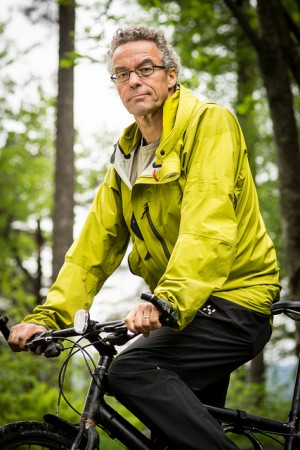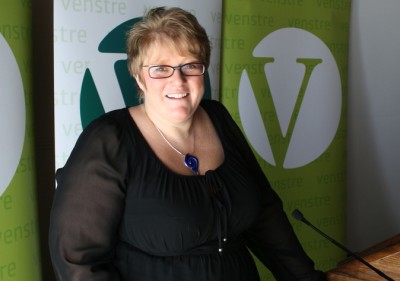Norway’s small political parties continue to clamour for power and influence even though they may lack support from as many as 96 percent of Norwegian voters. Undaunted and with seats in parliament after Monday’s national election, they’ll be striving for everything from influence within the new Conservatives-led government to holding all the other parties accountable on environmental issues.

For the first time, Norway has a purely “green” party in Parliament after Miljøpartiet De Grønne (MDG) secured enough votes to win one seat in the new Storting that convenes next month. It will be held by Rasmus Hansson of Oslo, a former head of the Norwegian chapter of the World Wildlife Fund (WWF) and a biologist who’s been a lifelong environmentalist.
“We have been working for this breakthrough for a long time,” the party’s national spokeswoman and top candidate from Rogaland on the West Coast, Hanna Marcussen, told news bureau NTB . Now she’s even more driven towards sparking a “green revolution” and planting its ideas on the national agenda.
“We already have managed the most important thing, establishing ourselves as a force in Norwegian politics,” Marcussen said. Both she and Hansson claim the party won’t ally itself with either the left or right blocs in parliament, but rather move with the issues. The party has harshly criticized the other parties parliament for constantly letting Norway’s oil-fueled economy take priority over the environmental policies they believe are necessary to stem climate change. Now they can at least offer a swing vote on various issues, for a price.
Their entry into the parliament occurred as the Reds (Rødt) lost its bid for representation, and has been widely linked to voter losses at another once-mighty but now small party, SV (the Socialist Left). SV barely won representation in the parliament after eight years as a member of the defeated left-center/red-green government. SV hung on after much drama on Election Night, but with four less seats and the loss of government position. It will now likely become a more radical voice in opposition, since it no longer needs to compromise on issues with Labour and the Center Party. The latter lost a seat in parliament along with control of the agricultural, transport, oil and energy and local government ministries. It will now need to carry on its efforts to protect farmers and Norway’s outlying districts from its seats in opposition.

On the winning side, the dominant non-socialist Conservative and Progress parties will need to negotiate a platform not only with each other but with the small Liberal and/or Christian Democrats parties. The two won just over 5 percent of the vote each but since at least one of them is needed to form a right-center government, they theoretically can demand that some of their policies become part of the government platform. Negotiations will be tough, especially on thorny issues such as oil exploration off Lofoten and easing Norwegian protectionism, but the two bigger parties will have to cave in on some issues. Lofoten may be one of them, since there’s growing pressure across the board to make Norway less reliant on oil.
Knut Arild Hareide, head of the Christian Democrats, claimed several times during the course of Election Night that the election results provided more strength to the centrist parties. Since he has often said his party couldn’t rule with the Progress Party, though, he may opt out of a non-socialist government coalition and vote with the opposition parties like the Center Party. That could leave Norway with a right-center government led by the three women who head the Conservative, Progress and Liberal parties. Prime Minister-elect Erna Solberg of the Conservatives needs to have her plan in place by mid-October.
newsinenglish.no/Nina Berglund

